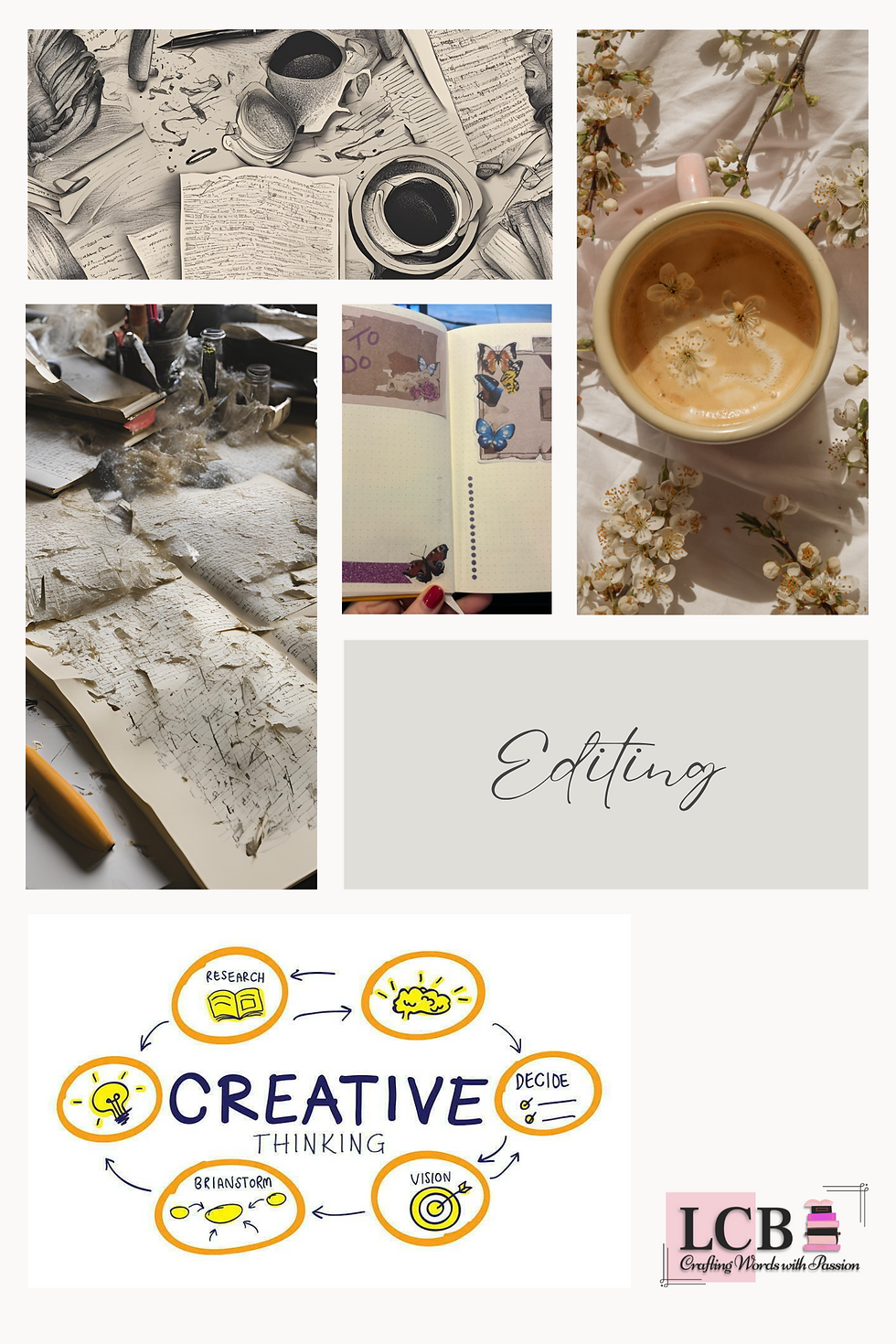Mastering the Art of Novel Editing: Essential Tips for Writers
- brightwritenow
- Jun 30, 2024
- 2 min read
Editing. That's the easy bit, right? Wrong! When the initial shiny new thing syndrome wears off, the hard work actually kicks in. This is the reality I wasn't particularly prepared for. When I typed The End on my first draft, I felt like I was a victorious warrior having defeated the dragon and got the girl. I was so, so wrong.
Having endured this steep learning curve, I thought I would cobble together some editing tips. Not for the faint-hearted!

1. Take a Break Before Editing
Before diving into the editing phase, it's essential to give yourself some distance from your manuscript. Taking a break allows you to return to your work with fresh eyes and a clearer perspective. This distance will enable you to identify plot holes, inconsistencies, and areas that require improvement more effectively.
2. Acceptance
Accept the first draft will need rewriting - yes, pretty much every word. (Have a gin, get a biscuit - this is the hardest one.)
Don't keep re-writing the first chapter - chances are it will change anyway.

3. Focus on the broad strokes of the structure
Is everything in the right order? Does it really start there? Are the peaks and troughs well paced? This might be a good time to go back to the three-act structure or whatever you used to plan and check all the elements are in place. Did someone say save the cat, he's run away with Chekov's gun.
4. Be ruthless
During the editing process, be ruthless in cutting out unnecessary elements. Keep only what serves the plot, characters, or themes effectively, and let go of anything that hinders the narrative's cohesion.
4. Characters
Characters are the heart and soul of any novel. Use the editing phase to delve deeper into your characters' motivations, personalities, and arcs. Ensure consistency in their behaviours and dialogue, and give each character a distinct voice that resonates with readers.
5. Revise Dialogue and Descriptions
Effective dialogue and vivid descriptions breathe life into your novel. During editing, pay close attention to your characters' conversations, ensuring they sound natural and advance the plot. Similarly, refine your descriptions to create immersive settings and evoke emotions in your readers.
6. Embrace Feedback
Seeking feedback from beta readers, writing groups, or mentors can provide invaluable insights into your novel's strengths and weaknesses. Embrace constructive criticism and use it to refine your work further. Remember, editing is a collaborative process that enhances your storytelling skills.
So, fellow writers, gear up your editing tools, sharpen your red pen, and embark on the transformative journey of refining your novel to brilliance! Your literary masterpiece awaits.







Comments